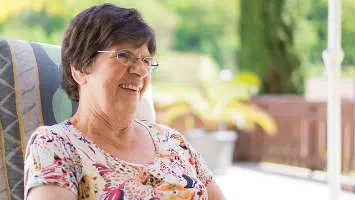

In today’s nursing homes seniors face a divergent world. In the world of their past, technology provided access to things that supplemented the way society functioned: televisions, telephones, and radios brought entertainment and communication with family living far away. Now, technology has become so ingrained in society as to become vital to it. Modern adults couldn’t function without access to their iPhones and computers on a daily basis, as well as the innumerable other varieties of technological innovation that make life easier.
While many seniors living in nursing homes have had a history of limited exposure to technology, many others see the Internet and other devices as an exciting new opportunity to learn, explore personal interests and communicate with old friends and family. In addition, many nursing homes are exploring the use of more advanced technology to provide seniors with higher quality care. In particular, leaders in the healthcare industry are beginning to implement the use of Artificial Intelligence (A.I.) to help with everything from social interaction to medical treatment.
One of the ways that artificial intelligence is being used to help seniors is through robots that make housekeeping easier. Most adults are familiar with the mechanized room sweeper, the robot that travels the floor picking up dirt and dust. Extending that idea, one company is working to create a robot that can do laundry and clean the house for seniors who cannot physically do the work anymore. The inventor, Dr. Thuc Vu of OhmniLabs, hopes that these robots will be ready for consumer use in five years and save homeowners 80% on the cost of hiring a full-time caregiver/cleaner.

Typically used by wealthy teenagers and professional gamers, virtual reality programs can be utilized for more than just video games. The simulation of familiar environments can bring comfort to seniors suffering from dementia or other memory disorders. It can also allow these seniors to experience the world in all of its tactile glory, feeling the sand beneath their feet and the sun hitting their head on a tropical island or the cool breeze and breathtaking view of a mountaintop. For an older person with cognitive limitations, the ability to stay “active,” even if through virtual reality, can extend his lifespan and improve the quality of life.
One of your biggest concerns when considering whether to put your loved one in a nursing home is how she will interact with roommates and staff members. In a group setting like a nursing home, it can be difficult to ensure your loved one the attention he needs on a daily basis. One way that software engineers and inventors have tackled this problem is through the creation of virtual companions and robotic pets. Researchers and designers from the University of Cincinnati and Brown University have come up with ARIES, an Affordable Robotic Intelligence for Elderly Support, which is programmed to act like a normal pet cat. Intended for seniors with dementia, the pet interacts with seniors just as their fluffy alter-egos would, meowing for attention or affection and turning on their backs for a friendly belly rub.
CareCoach, another senior care company, has created an online application that allows seniors to receive individualized attention no matter whether they live in their own home or a nursing home. A virtual animated pet creates a conversation with your loved one through an iPhone or Android screen; behind the program, a CareCoach employee monitors their surroundings and looks for problems that may come up during a normal day. The cost for this program is around $200/month, which is much less than the cost of having someone come out and check on your loved ones every day.

Haberman Law is dedicated to representing the rights of victims of nursing home abuse and neglect.
Many of us turn to nursing homes, assisted living facilities, and group homes to provide care for our elderly loved ones.
If you suspect that a loved one was the victim of abuse or neglect in a nursing home, assisted living facility, or group home, contact us.
Call us for a free consultation:
215-240-7771
© 2025 PA Nursing Home Lawyers By Len Haberman, Esq. All Rights Reserved